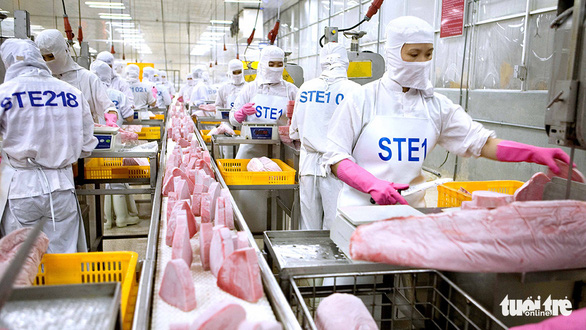A regulation that forces Vietnamese exporters to go through complicated paperwork to prove they are authorized to use foreign-managed barcodes on their shipments is being described by local businesses as unnecessary red tape that does more harm than good.
A government decree dated May 15, 2018 stipulates that organizations using foreign codes in compliance with GS1 standards shall ensure that their codes or barcodes are issued by foreig authorities or used according to a foreign code owner’s authorization.
In case of using a foreign code authorized by its owner, organizations must inform a competent regulatory authority in Vietnam to get confirmation for the use of the code.
GS1 is a not-for-profit organization that develops and maintains global standards for business communication, with the best known of these standards being the barcode.
The government regulation has led to shipment delays and added more costs on domestic exporting enterprises, according to Pham Thanh, who represents a group of rice exporters in Ho Chi Minh City and neighboring Binh Duong Province.
Exporters contacting local regulatory authorities to get confirmation on their authorized use of foreign barcodes were referred to the National Numbering and Barcodes Center (NBC) under the Directorate for Standards, Metrology and Quality (STAMEQ) in Hanoi, Nguyen Hoai Nam, deputy general secretary of the Vietnam Association of Seafood Exporters and Producers (VASEP), told Tuoi Tre (Youth) newspaper.
The NBC is currently the only agency providing such confirmation, according to VASEP.
To prove they have been authorized to use foreign barcodes, exporters must present the NBC with the original copy of a letter of authorization and documents demonstrating that the barcode is recognized by foreign authorities, along with translations of these papers.
This procedure can take about 20-30 days, significantly delaying the export of goods stamped with foreign barcodes, Nam said.
According to the director of a company exporting seafood in the Mekong Delta province of Soc Trang, no other country in the world has such a requirement.
The requirement not only makes no contribution to increasing product quality but also hinders businesses, the director said.
“It is either time-consuming or impossible for Vietnamese enterprises to get the letter of authorization as similar provisions do not exist in the countries to which they are exporting,” the director said.
“In urgent cases, they [foreign importers] will opt for goods from other countries,” the director added.
Likewise, VASEP’s deputy general secretary Nam voiced concerns that the regulation will make foreign enterprises reluctant to import made-in-Vietnam goods and result in other negative impacts.
According to VASEP, the association has sent several documents to the prime minister and related ministries and agencies complaining about the issue, seeking deregulation.
In light of feedback from enterprises, the Ministry of Science and Technology told Tuoi Tre that it will mull drafting an amendment to the government decree in question in a way that will benefit enterprises and expedite the administrative procedure.
In the meantime, the ministry has implemented quick fixes to the issue, including enabling the local STAMEQ offices in Tra Vinh Province, An Giang Province, Can Tho City, and Dong Thap Province in the Mekong Delta and Binh Duong to handle applications for the confirmation of barcode authorization.
It also yearns to have the procedure completable within one working day and slash related fees by half.
Like us on Facebook or follow us on Twitter to get the latest news about Vietnam!

















































